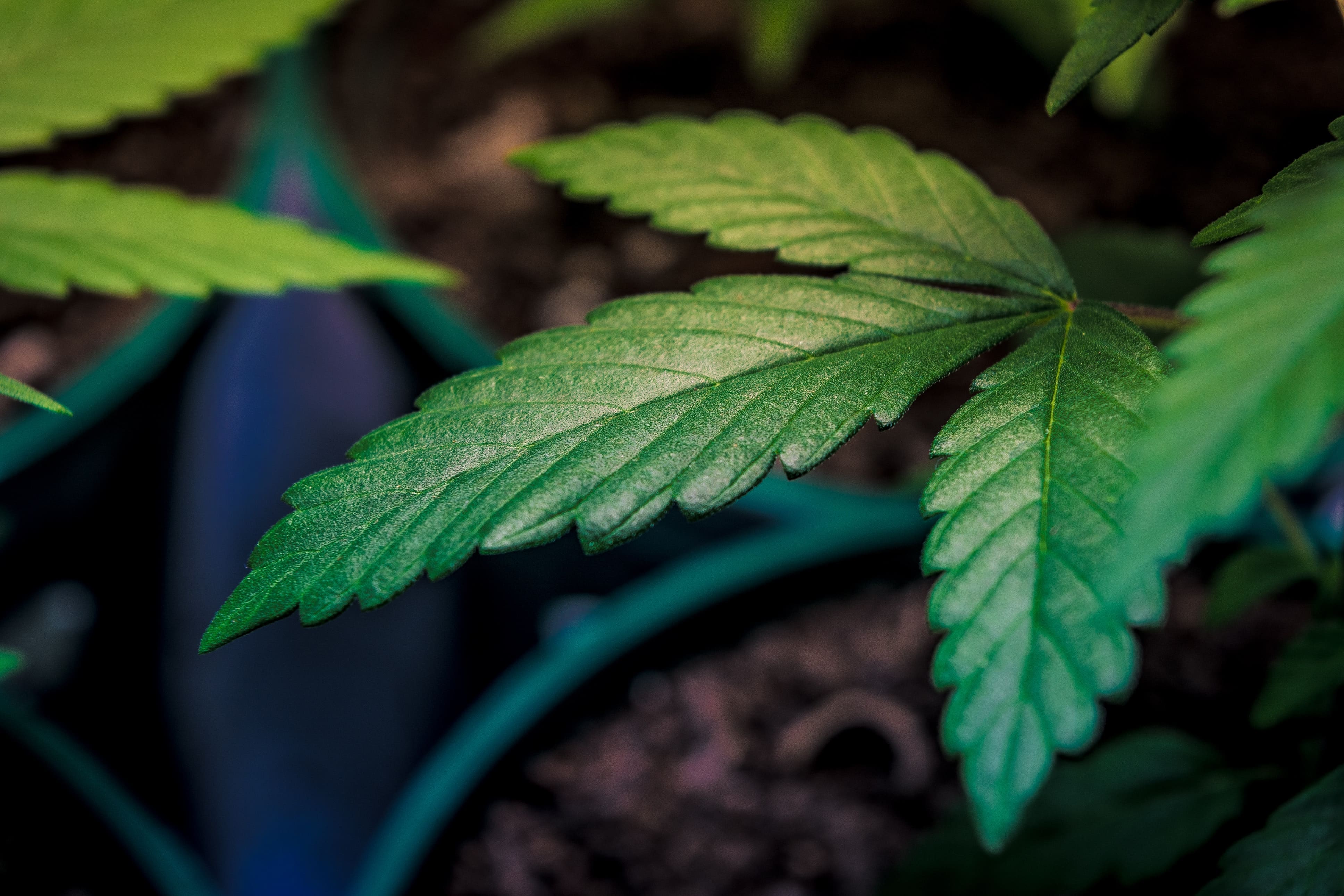Politics
New Hampshire House Passes Bill To Legalize Marijuana Through ‘Agency Store’ Model That Senators Oppose

New Hampshire’s House of Representatives has approved a bill to legalize and regulate marijuana in the state and set strict limits on advertising and marketing. The legislation, from Rep. Erica Layon (R), next proceeds to the Senate, where many expect it will receive a cold welcome for departing from a state-controlled model supported by Gov. Chris Sununu (R).
Layon has spent months workshopping and building support for the plan despite warnings from some in the Senate—most notably Sen. Daryl Abbas (R), who chaired a failed state commission on legalization late last year—that her proposal will be dead on arrival in that chamber unless it includes a state-run franchise system under which the government would control the look, feel and general operations of retail stores.
House lawmakers have so far decided to stuck with Layon’s original bill, though with some changes. Earlier this month, a House subcommittee rejected a sweeping amendment that would have replaced Layon’s plan with a franchise model.
On Thursday, the full House passed HB 1633 on a 239–136 vote. The body had given initial approval to the cannabis legislation in February, after which point it went to the Finance Committee before returning to the floor for final passage.
“I think this is an excellent bill,” Layon told colleagues ahead of the vote, “and quite frankly I think it’s time for us to go ahead and vote on this bill, and let the other body deal with it.”
It’s not yet clear how the situation will unfold as the proposal lands in the opposite chamber. Many expect senators to make significant changes, though it’s also possible they could greenlight Layon’s plan as-is or, alternatively, refuse to consider it at all.
If enacted in its current form, HB 1633 would allow 15 retail stores statewide and impose a 10 percent state charge on adult-use purchases. Medical marijuana would be exempt from the tax.
Layon has described her agency store approach as a system “where the state requires agreement and compliance from private businesses granted limited licenses by the Liquor Commission beyond the traditional health and safety regulatory role of government.” She’s consistently warned that state-run sales or a franchise model through which the state exercises day-to-day control over marijuana businesses could put the state and its finances at risk of federal intervention or litigation.
“This meets just about every requirement—every requirement that was previously laid out in order to become law,” Layon said Thursday. “There was a last-minute change to require a franchise, where the language…seemed that the franchise agreements would be done in secret.”
“This bill makes it so that the agency model has strong control,” she added, “but those rules about how they operate would be done through administrative rules, so there’d be public comment. It also doesn’t set prices.”
A floor amendment adopted before the vote removed a single mention of the franchise approach from the bill. Layon told Marijuana Moment earlier this week that the language was used mistakenly and should have referred to agency stores. The amended bill still contains a definition for “franchise model,” but it would not establish one.
Opponents argued on the House floor Thursday that the bill would lead to an increase in mental health problems in the state and fail to deliver on promised benefits.
“I rise to oppose any legalization of cannabis, also known as marijuana,” said Rep. Kenneth Weyler (R). “We now have the examples of many other states that have legalized the substance over the past few years. Have any of them bragged about how much money they made? Have any of them seen a reduction in petty crime?”
Replied Layon: “No matter what we do today, and no matter what ultimately happens with this bill, there are a large number of people in New Hampshire that use cannabis. Telling them that it’s illegal and they shouldn’t use it hasn’t worked, so I’m not sure how that will stop anybody.”
“The problem right now is a lot of people who choose to use cannabis either can drive out of state, they can illegally grow it at home or they can buy it on the streets, and there’s issues with buying it on the streets,” the measure’s sponsor continued. “What this bill would change is you could have regulated tested product that’s free of contaminants and that is not mixed with other drugs. You would know what was in it, you would know what strain, you would know what concentration. So for those who would choose to do it, it would be safer. And for everybody else, it wouldn’t be a discussion that you’re having, because most people who would use cannabis if it’s legal already are.”
Before voting on the bill earlier this month, members of the House Finance Committee adopted a handful of changes from both Layon and the committee chair, Rep. Peter Leishman (D). Those changes reduced the proposed penalties for public consumption of marijuana to remove the possibility of jail time, specified that Liquor Commission funds would be used to set up the new system and adjusted the flow of would-be revenue to go directly into the state’s general fund.
“If the Senate has problems with passing a bill, I don’t see why we have to do their hard work here for them,” Rep. Chuck Grassie (D) said during an earlier subcommittee hearing. “I think they need to debate this. They need to make up their mind on a bill, and they need to send something back to us if we want to see cannabis legalization in the state of New Hampshire.”
Grassie applauded Layon for what what he called “a Herculean effort…to get the governor and the Senate on board.”
In a committee report in favor of HB 1633, Grassie wrote that the bill would ensure products are lab tested, accurately labeled and not sold to people under 21.
“Many years of work have led to this effort,” the report says, “which focuses the State of NH on harm reduction, non profits, and allows the state to control distribution and access through state laws, administrative rules, and local control.”
“The legalization of cannabis will move production and sales from the underground, sometimes dangerous, illicit market to legal businesses,” it adds, “allowing for appropriate regulations and control.”
Weyler, meanwhile, wrote the House Finance Committee’s minority report, which consists largely of a quote from Virginia Gov. Glenn Youngkin’s (R) recent veto of cannabis sales legislation in that state.
“The minority is inspired to use the language that Governor Youngkin used in his veto in Virginia: ‘States following this path have seen adverse effects on children’s and adolescent’s health and safety, increased gang activity and violent crime, significant deterioration in mental health, decreased road safety, and significant costs associated with marijuana that far exceed tax revenue. It also does not eliminate the illegal black-market sale of cannabis, nor guarantee product safety,'” Weyler wrote.
Unlike in New Hampshire, Virginia has already legalized the use, possession and limited home cultivation of marijuana.
Layon quipped at an earlier committee hearing that she had considered amending her bill to similarly legalize noncommercial marijuana.
Instead, she told Marijuana Moment earlier this month that she’s committed to moving her legalization bill closer to what Sununu has said he wants the policy change to include.
“I initially intended that this bill sort of be a counterpoint to what the special committee was going to deliver and what Sen. Abbas was going to introduce,” she said. “The fact that he didn’t introduce it and this is the only shot at legalization this year, I just really wanted to work hard in a good faith effort to get to something that I was comfortable with and that match the requirements of the governor as best I understood them.”
The governor said at a recent event, meanwhile, that he thinks legalization is “inevitable” in New Hampshire, adding that policymakers have “seen the mistakes other states have made so as not to walk down that path.”
“People just want the accessibility for adults, keeping it away from kids,” Sununu said. “If they can meet those rough stipulations, I would sign it, because I think that’s one of the safest systems you’re going to get.”
He added that as a legalization skeptic, he’s better positioned to consider a thoughtful bill.
“There’s no better person to help design a system that could be fraught with problems and risk specifically to kids than the guy that’s most scared of it,” he said.
Last year Sununu said he supported a system of state-run retail stores, but lawmakers on a state study commission last year instead pivoted to the idea of a franchise system, which the governor has said he’s willing to entertain. Officials at the Liquor Commission have said it would be far less costly for private franchisees to build out a system of retail stores than to ask the Liquor Commission to take on that task itself.
Lawmakers worked extensively on marijuana reform issues last session and attempted to reach a compromise to enact legalization through a multi-tiered system that would include state-controlled shops, dual licensing for existing medical cannabis dispensaries and businesses privately licensed to individuals by state agencies. The legislature ultimately hit an impasse on the complex legislation.
Bicameral lawmakers also convened the state commission tasked with studying legalization and proposing a path forward last year, though the group ultimately failed to arrive at a consensus or propose final legislation.
Last May, the House defeated marijuana legalization language that was being proposed as part of a Medicaid expansion bill. The Senate also moved to table another piece of legislation that month that would have allowed patients and designated caregivers to cultivate up to three mature plants, three immature plants and 12 seedlings for personal therapeutic use.
After the Senate rejected the reform bills in 2022, the House included legalization language as an amendment to separate criminal justice-related legislation—but that was also struck down in the opposite chamber.
















